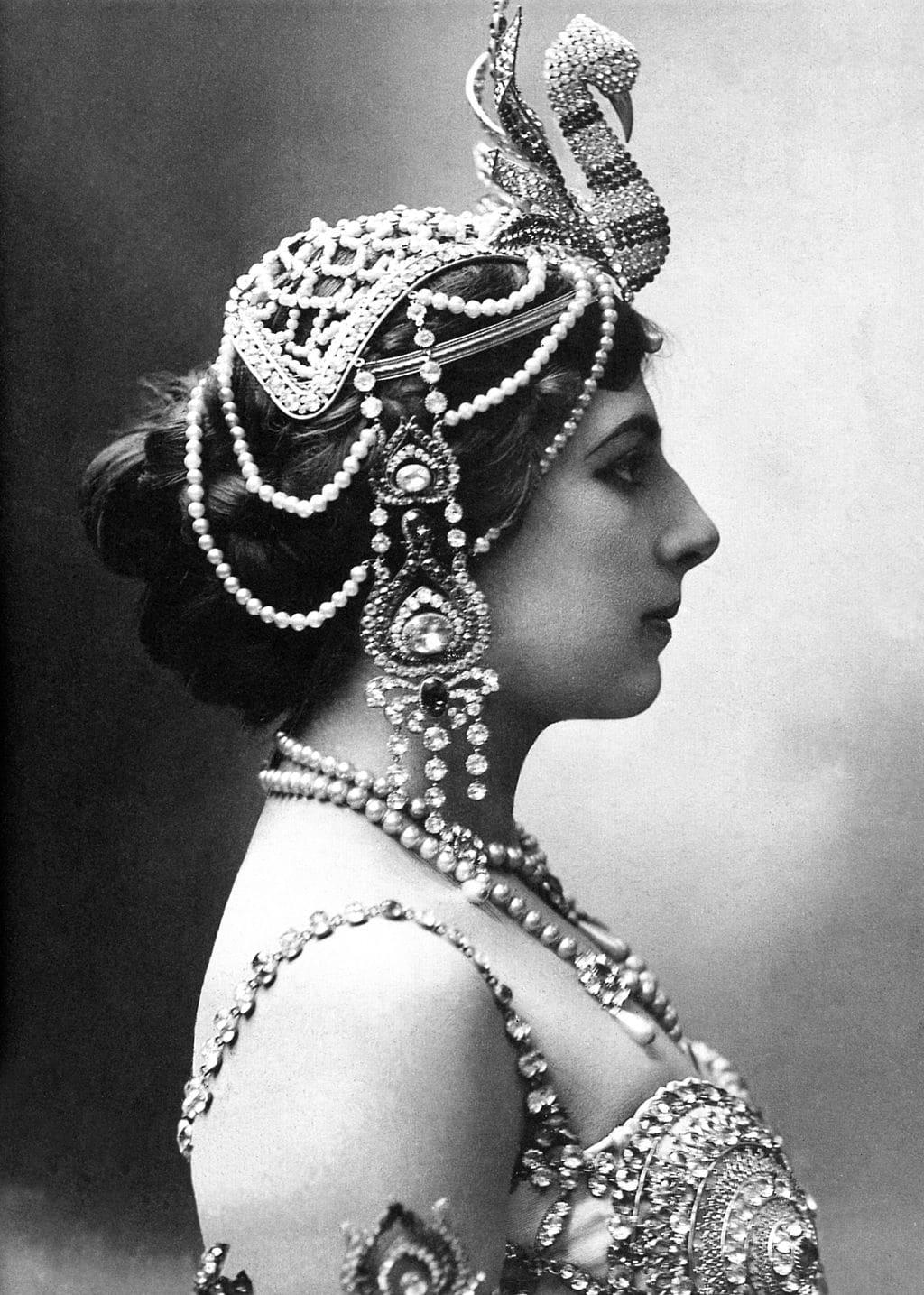Mata Hari
The woman whose only crime was survival

One solemn truth of human history is the presence of millions of stories that have all gone untold. Even if all the dead were remembered by the living, there wouldn’t be enough paper in the world to chronicle all their lives. There wouldn’t be enough time to relay every story by word of mouth. Millions of lives have been lived in hiding from the eyes of history, leaving marks on the world in ways the living will never quite remember or understand; then, teetering over the edge of an abyss are a few stories on the verge of being forgotten, like the story of a woman who was executed by the French government during World War I, which was the culmination of 41 years of a life that perfectly illustrated the need for women’s liberation. In the end, her only crime was her determination to provide for herself and to survive.
She was born Margaretha Zelle in the Netherlands in 1876. She enjoyed a luxurious early childhood when her father had the money to provide this to her; things changed when her father went bankrupt in 1889, which led to her parents’ divorce. Her mother died shortly thereafter in 1891, when Margaretha was 15. One struggle after another in such quick succession tore the family apart at the seams, and Margaretha left her father to live with her godparents; as if all that weren’t enough, Margaretha’s godfather had to pull her out of her new school when he discovered she was being sexually harassed by the headmaster.
The idea that a man in a position of authority might abuse his power to pressure vulnerable young women and girls into sexual relationships is all too familiar to us in the year 2021. During the #MeToo movement that caught fire in late 2017, a new light was cast on the issue, and it brought down powerful men like Harvey Weinstein, Bill Cosby, and Larry Nassar - all men who were successful and respected in their fields, and all men who abused their power and influence to get away with assaulting and violating young women and girls.
When Margaretha was just 18 years old, she answered an ad in a Dutch newspaper written by Rudolf MacLeod, an army captain 20 years her senior who was living in Indonesia and looking for a wife. The pair got married on July 11, 1895. The marriage improved Margaretha’s financial position and produced two children, a son and a daughter, but was ultimately a negative experience. Rudolf had troubles with alcoholism, openly kept a concubine, and quickly became physically abusive to his much younger wife. Margaretha left him once, devoting several months to studying Indonesian culture and joining a local dance company. It was during this time that she wrote to her relatives in the Netherlands and called herself by her stage name for the first time: Mata Hari, the word for “sun” in the Malay language. She returned to MacLeod for a time, but his violent behavior was unchanged. Mata Hari was still financially dependent on her husband, and had two kids to look after.
1 in 4 women in the United States have experienced intimate partner violence. Most every woman in America either knows someone who experienced it, or has gone through it herself. And yet, women stuck in abusive situations are still faced with criticism for staying, or for defending their partners, even when the complex range of emotions victims feel has made itself known to so many women.
Mata Hari didn’t make a name for herself until after her own family broke apart. She moved to Paris in 1903, and by 1904 she began to receive praise for her work as an exotic dancer and a courtesan. Her on-stage performances included the gradual removal of layers of clothing as she danced, until she was on stage in nothing but an ornately beaded breastplate. She met a new lover, a Russian pilot, and described him as the love of her life. But this was during World War I, and all the traveling she did to perform began to raise eyebrows. She was interrogated in England and confessed to espionage, though many still believe her to be innocent because the French needed a scapegoat. Margaretha Zelle was executed by French firing squad on October 15, 1917.
Sex work is still a highly stigmatized profession. Sex workers, especially those who are transgender women or women of color, face shockingly high rates of sexual assault, rape, and murder.
Feminists have been fighting for hundreds of years now to receive better awareness and acknowledgement of women’s issues. Mata Hari should be remembered as an example of a woman who faced just about every problem in the feminists’ playbook, and an icon that represents women’s resilience in the face of adversity. She faced problem after problem, roadblock after roadblock, and she didn’t stop going until someone shot her to death. What happened to her was a horrible tragedy after a lifetime rife with horrible tragedies, but Mata Hari should be remembered as the woman strong enough to steamroll through each and every one.
About the Creator
Natale Felix
Writer. As you're reading this, there's roughly an 80% chance that I'm daydreaming about someday building my own house.






Comments
There are no comments for this story
Be the first to respond and start the conversation.